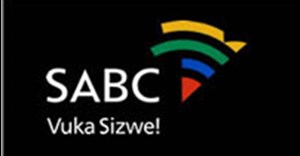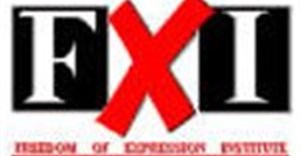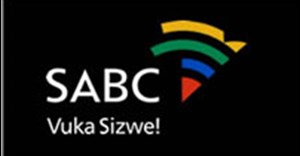Subscribe & Follow
#CannesLions
- The new standardCarl Willoughby
- All the South African winnersDanette Breitenbach
- Final Grande Prix and LionsDanette Breitenbach
Trending



 Executive pay: The virus Elon Musk is exporting back to SAAnn Crotty for Just Share
Executive pay: The virus Elon Musk is exporting back to SAAnn Crotty for Just Share

Jobs
- Paid Social Media /Campaign Specialist Johannesburg
- Digital Account Director Rosebank
- Junior Administrative Assistant Cape Town
- Sport Reporter - Rugby and Cricket Johannesburg
- Team Lead Cape Town
- Graphics Designer - 2D/3D Motion, Print and Digital Johannesburg
- Managing Editor London, Great Britain (UK)
- Chief Sub-Editor London, Great Britain (UK)
- Mid Weight Journalist Johannesburg
- Content Creator Cape Town
The SABC's crisis of integrity
"SABC's credibility has taken a serious knock," Anton Harber, Caxton Professor of Wits University School of Journalism, told Bizcommunity.com this week. "The Sisulu Report presented them with an excellent opportunity to clean up a newsroom which has clearly been compromised and to assert their support for independent journalism.
"So far they have failed to do so and have been dancing around the issue in what appears to be a bid to avoid doing so," Prof Harber added.
Na'eem Jeenah, head of the Anti-Censorship Programme at the Freedom of Expression Institute (FXI), echoes Prof Harber's sentiments. "This scandal, following on the heels of others, has damaged SABC's credibility as a public broadcaster. The manner in which it has handled the matter has resulted in all kinds of speculation in public, rumours, and even a judge reprimanding the corporation.
Cover-ups
"Certainly, the impression left in the minds of many is that the SABC is not playing its role as public broadcaster," Jeenah told Bizcommunity.com.
SABC head of communications, Kaizer Kganyago, firmly disagrees. "There is no turmoil and no such thing as damaged credibility," he said. "Let them say whatever they want, but I want to make it clear that we are the ones who commissioned this inquiry in the first place in a bid to demonstrate transparency and honesty around this issue."
So far, this blacklisting saga has been marred by cover-ups, denials, accusations and counter-accusations, court cases, finger-pointing and even allegations of political interference.
Asked - again - to justify why the SABC did not publish the whole report (78 pages, available on the Mail & Guardian Online website in its entirety: www.mg.co.za), following the recommendations of the commission, Kganyago said: "Those are only recommendations and we are not duty-bound by them as we do things like taking the public interest into account. I fail to understand why people are making such a big deal out of this issue.
"Let me say that there is only a slight difference between the fraction of what we have released and the one those people have. The thing is we felt that we should not include the statements of the people who testified at the commission, which is not first of all a judicial institution, and also these testimonies are just allegations."
Crisis of morale and integrity
Financially, the SABC has done well in the past year, posting a whopping after-profit of R383 million and increasing its total revenue by 17% year on year. But many observers say that it is unfortunate that these achievements continue to be overshadowed by its top leadership's political fanaticism, lack of judgement and wisdom - something they believe has pushed the corporation to the brink of a major crisis of morale and integrity.
The year 2006 will perhaps go down in history as one of the most turbulent years for the public broadcaster, as it has been involved in many controversies - the most astounding being of course the withdrawal of the President Thabo Mbeki documentary.
Kganyago, on behalf of the SABC, continues to deny that the SABC "removed" some names but did not "blacklist". "There was no such thing as a blacklist," he said. "What we did instead was to remove the names of some people whom we felt lacked knowledge in the subjects they were debating or commenting on. I do not know where this blacklist or ban word came from."
But this "removal" did not go down well with the FXI, which feels that freedom of speech and diversity of views have been violated - something that can in the long run damage the country's image abroad. "If incidents and scandals such as these continue to accumulate, internationally the image of South Africa as a free and democratic society will increasingly be damaged," Jeenah said.
"And the image could be created that the public broadcaster has become a state/government-controlled institution."
Asked if South Africa could end up becoming like Zimbabwe, DRC, Angola and other African countries where state-controlled media washes out the government's misdeeds, Jeenah replied: "I do not think so. However, citizens in any democracy need constantly to be vigilant in protecting that democracy because the slide to dictatorship is not a long one. Raising their objections to the SABC's conduct is one form of that vigilantism. If we allow such incidents to go by unchallenged, then we will be able to say that we have begun that slide."
The battle for press freedom
Furthermore, Prof Harber is optimistic that unlike other African countries, South Africans can still enjoy freedom of speech, but warned that the road ahead is a spiky one. He said: "I think we still have a great deal of expression and Government is facing tough scrutiny from quite a range of vigorous and outspoken media. But the battle is far from over."
He has this advice for SABC's top leadership: "The SABC can get back to the right path by taking a few strong actions to move a newsroom away from a culture of subservience and soft-soaping and promoting a new culture of journalistic rigour and excellence. They will not achieve this overnight, but the right kinds of clear actions can get them back to this path."
Kganyago confirmed to Bizcommunity.com that SABC CEO Dali Mpofu is expected to make some decisions in the "near future", based on the recommendations and findings of the commission. However, he declined to elaborate, neither saying when the public can expect those decisions.














